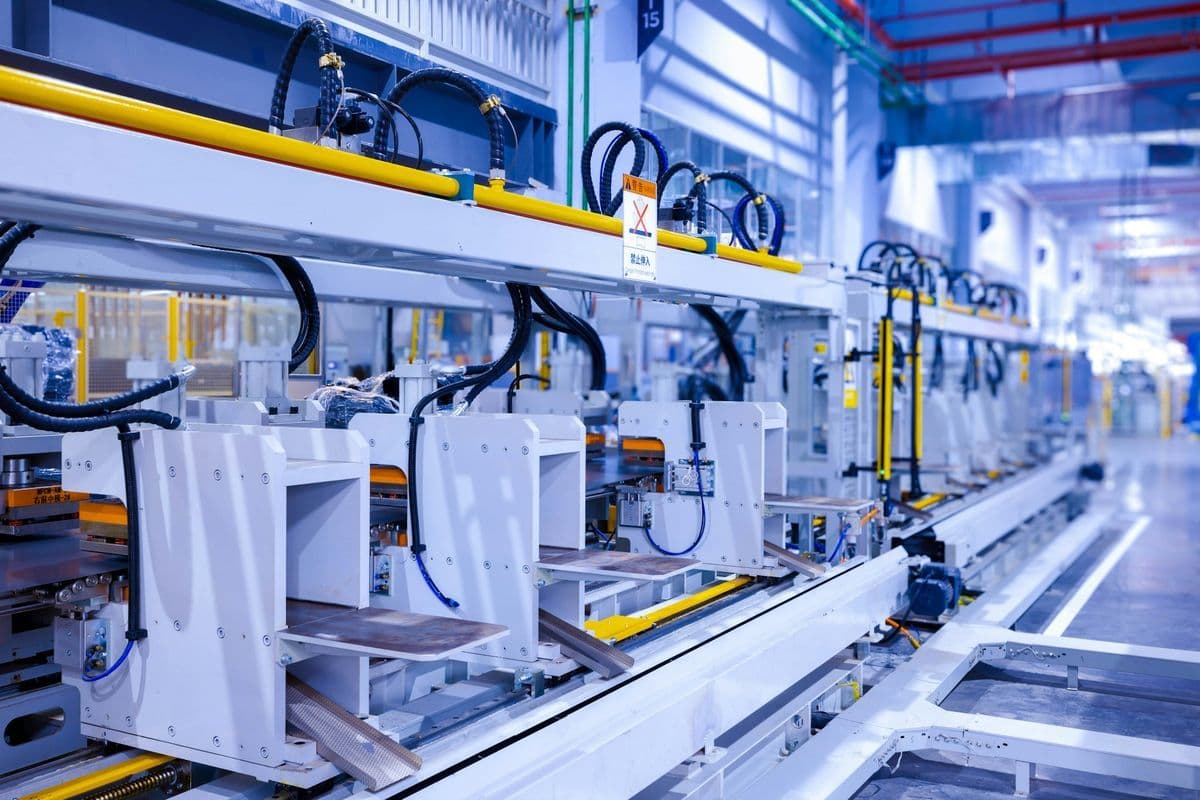It's no secret that businesses today are feeling the heat. Customers expect faster service, personalization at scale, and seamless experiences across every touchpoint. At the same time, disruptive technologies are rewriting the rules of competition, forcing companies to innovate, or risk falling behind.
But here's the catch: manual processes and even traditional automation tools just can't keep up anymore. They're like trying to navigate rush-hour traffic with a map when everyone else has GPS.
Teams often spend many hours on repetitive tasks like data entry, sending follow-up emails, or managing inventory. These bottlenecks slow things down, drain valuable resources, and leave little room for strategy or creativity.
And that's where AI automation steps in.
AI offers a competitive advantage for businesses that want to stay agile, efficient, and ahead of the curve. Unlike outdated methods, AI streamlines workflows and completely transforms them. Whether it's automating personalized outreach in marketing, optimizing supply chain logistics, or crunching numbers in real time for finance teams, AI frees up human talent for the kind of high-value work that drives growth.
Core Technologies Behind AI Automation in Business
AI automation works because of a series of powerful technologies working together, each playing a unique role in transforming business operations. Let’s break it down.
- Machine Learning (ML): The backbone of AI automation, ML sifts through mountains of data, spots patterns, and makes predictions. For businesses, this means smarter decision-making, whether it’s forecasting demand or creating personalized product recommendations.
- Natural Language Processing (NLP): This technology powers chatbots that feel human, voice assistants, and tools that analyze customer sentiment, helping companies personalize interactions and resolve issues faster.
- Robotic Process Automation (RPA): RPA works alongside AI to handle repetitive, rule-based tasks; think of it as your digital assistant for data entry, invoice processing, and reporting. It’s fast, precise, and never takes a coffee break.
- Computer Vision: This is AI’s “eyes,” it identifies defects in manufacturing, powers autonomous checkouts in retail, and even manages inventory by recognizing product shapes and labels.
- Generative AI: Imagine AI that both analyzes and creates, from personalized marketing content to rapid prototype designs, generative AI accelerates innovation like never before.
- Cloud Computing: The silent enabler of scalability, cloud infrastructure handles the heavy lifting, storing data, running AI models, and connecting teams across geographies.
- IoT Integration: When AI meets IoT, magic happens, sensors feed real-time data while AI optimizes processes like route planning in logistics or energy usage in smart buildings.
- Cognitive Computing: Advanced AI systems that process and analyze complex data streams to support decision-making across industries like healthcare, where precision and personalization matter most.
These technologies automate tasks and open new ways to innovate and scale.
For businesses ready to disrupt, this is the toolkit to watch.
AI Automation in Business Functions
AI automation has transformed virtually every corner of modern business operations. Saving time means unlocking entirely new levels of efficiency, accuracy, and growth potential. Let's look at how AI is streamlining key business functions, turning what used to be time-consuming processes into opportunities for innovation.
- Sales and Marketing: Imagine your sales team only focusing on leads that are most likely to convert. AI makes this possible by analyzing customer data and identifying high-value prospects. It also takes personalized marketing to a whole new level, automating outreach with messages customized to individual behaviors. Your campaigns actually feel smarter, “because they really are.”
- Operations: Downtime can cripple your business, but AI's predictive maintenance forecasts potential equipment issues, allowing you to address problems before they cause costly shutdowns. Pair that with AI-driven inventory management, which enhances demand forecasting accuracy while working alongside your team to optimize supply chain efficiency.
- Finance: From invoice processing to fraud detection, AI handles these tasks with ease, extracting data, ensuring accuracy, and flagging suspicious patterns in real time. It's like having an entire financial team working 24/7, minus the coffee breaks.
- Human Resources: Recruitment and onboarding don't need to be a bottleneck. AI screens resumes, ranks candidates, and even manages new hire paperwork and training schedules. Your HR team gets time back to focus on what they do best—building a great workplace.
- Supply Chain: From demand forecasting to optimizing delivery routes, AI is the logistics expert your team didn't know it needed. It reduces costs, improves delivery times, and ensures you're always one step ahead of demand.
- IT: Routine support tasks like password resets and software installations are no match for AI-driven service desks. Meanwhile, AI-powered security systems keep an eye on your network around the clock, identifying threats long before they escalate.
- Manufacturing: Whether it's spotting defects on a production line or suggesting ways to speed up output, AI is the ultimate operations coach. It ensures consistent quality and maximizes productivity.
- Healthcare: AI is automating crucial workflows and saving lives. From analyzing medical images for faster diagnostics to crafting personalized treatment plans, it's reshaping the way healthcare operates.
AI automation extends beyond making processes faster and accelerates processes and helps businesses evolve, adapt, and succeed in ways that weren't possible before.
The possibilities are practically endless.
Building and Scaling AI Automation
Building AI automation means adding a shiny new tool to your setup and creating a system that works for your business today while scaling with it tomorrow. And it all starts with a solid foundation.
First, focus on data collection and preparation. Clean, accurate, and well-structured data is absolutely non-negotiable. Think of it as the fuel for your AI engine.
Next, tackle integration with your existing systems. Whether it's your CRM, ERP, or any other enterprise platform, AI should fit seamlessly into your workflows. The goal is to enhance your operations while keeping everything running smoothly.
To speed things up, leverage low-code or no-code tools. These platforms let you deploy AI solutions fast without bogging your team down in endless coding. It's like having a shortcut to innovation.
But here's the thing, AI systems require attention and ongoing updates to stay effective.
Create feedback loops so your systems learn and improve over time. Regular updates are equally critical to keep pace with shifting business needs and data patterns.
Your workflows also need room to breathe. Design adaptable processes that can handle AI-driven changes without throwing your team into chaos.
And don't underestimate human-in-the-loop methods. Having human oversight ensures accuracy and makes AI more reliable, especially in high-stakes scenarios.
Departments like marketing, sales, and customer service stand to gain the most. From automating personalized outreach to using chatbots for customer inquiries, AI allows teams to focus on strategy while routine tasks are handled automatically. Discover the key benefits of building an AI assistant to see how these tools can transform every team.
By combining smart technology with thoughtful planning, your business stays ahead.
Challenges and Human Oversight in AI Automation
Adopting AI automation isn't without its hurdles, and ignoring these challenges can lead to costly mistakes. For starters, AI systems need clean, reliable data, whether it's structured databases or unstructured content like images and text. If your data is messy, incomplete, or inconsistent, the outputs can become unreliable and may actively harm your decision-making.
And then there's the elephant in the room: legacy systems. Many businesses still rely on outdated tech stacks that simply don't play nice with AI. Integration can be a logistical headache, slowing down the very transformation you're aiming for.
Another issue? Algorithmic bias. AI learns from the data it's fed, and if that data carries hidden biases, you risk creating systems that unfairly favor, or exclude, certain groups. Regular audits and bias mitigation strategies are non-negotiable here.
And we can't ignore the financial side. AI implementation often comes with upfront costs that can intimidate smaller startups. That's why phased rollouts and clear ROI goals are your best friends.
But perhaps the biggest pitfall is automating broken processes. If you automate inefficiencies, you end up accelerating bad workflows instead of improving them.
Streamline and optimize first, then bring in AI to amplify those gains.
AI may be smart, and fallibility remains a real factor. Establish governance frameworks to keep systems on track and maintain ethical standards. Investing in internal expertise can also reduce dependency on external vendors, giving your team better control over AI projects.
To navigate these challenges, consider strategies like these:
- Audit and clean your data before diving into automation. Quality data equals quality results.
- Assess your tech stack to ensure AI integrates smoothly with existing systems.
- Build governance policies to monitor accuracy, fairness, and compliance.
- Train internal teams to manage and adapt AI solutions over time.
At the end of the day, AI relies on the strength of the foundation you build for it.
Keep humans in the loop, optimize your processes, and approach automation with intention.
That's how you win.
The Future of AI Automation in Business
AI automation has become a powerful force driving businesses toward greater efficiency, innovation, and scalability. From improving operations with predictive analytics to personalizing customer interactions through natural language processing, the impact is undeniable.
Emerging technologies like generative AI, IoT integrations, and no-code platforms are making it easier than ever for companies to adopt and scale these solutions.
Automation handles repetitive tasks and amplifies productivity, while intentional collaboration between humans and machines ensures ethical, sustainable, and innovative outcomes.
The future of AI in business is characterized by continuous evolution. Advanced AI models are already reshaping industries, and integration with new technologies like blockchain opens doors to untapped possibilities. Automating marketing campaigns, optimizing supply chains, or enhancing customer service provides a competitive advantage for those embracing these advancements today.
Success comes from remaining agile, thoughtful, and prepared to iterate quickly.
For companies ready to capitalize on AI automation and fast-track business innovation, there's no better time to start. At NextBuild, we specialize in developing rapid MVPs that incorporate advanced AI technology, giving startups the competitive edge they need.
Ready to transform your business with AI-powered solutions? Let's build your MVP together; because the future won't wait, and neither should your business.



